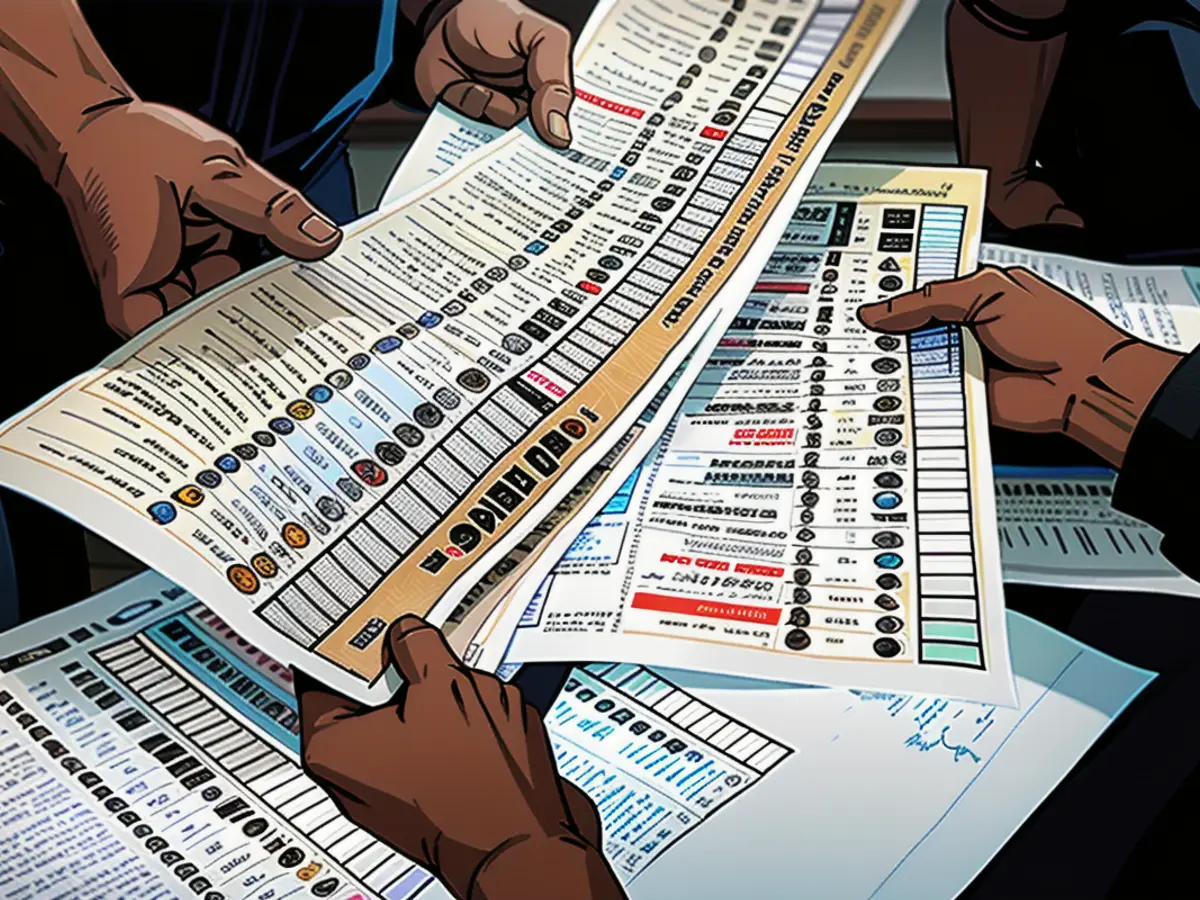The African National Congress falls short of securing an outright victory and needs support from other parties.
South Africa is experiencing a major political shift. For the first time since the end of apartheid, the ruling African National Congress (ANC) has failed to secure an absolute majority and now relies on a coalition partner to form a government, as pointed out by partial results from the electoral commission. The ANC attained less than 42% of the votes with a 65% audit rate. Predictions suggest that the party may only manage 40% in the end. In the previous election in 2019, the ANC garnered 57.5%. This constitutes a staggering reduction of over 17 percentage points.
It is uncertain with whom the ANC could form a coalition. Nomvula Mokonyane, the deputy secretary general of the party, stated that the party's leadership will discuss what is best for the nation. Since the South African President is chosen by parliament, the ANC also requires the backing of another party to ensure a second term for President Cyril Ramaphosa.
John Steenhuisen, the leader of the Democratic Alliance, expressed his openness to working with the ANC, but he first intends to consult with a group of smaller parties with whom he had made a pre-election deal. His party received 23% of the votes and placed second. Steenhuisen stated, "The prospect of the most significant political transformation in South Africa in three decades creates a completely new landscape for politics in South Africa and the potential to construct something improved for South Africa's citizens."
Their recent party MK, led by former President Jacob Zuma, received 12% of the votes, and the EFF received 9% according to the preliminary results. If the ANC had been slightly below 50%, it could have reached agreements with several smaller parties. However, if the results are confirmed, the ANC would have to consider a coalition with one of the larger parties, whose positions, for instance, on economic matters, differ significantly from those of the ANC.
Read also:
The African National Congress (ANC) only secured 40% of the votes in the recent election, a significant reduction of over 17 percentage points compared to 2019, making it necessary for the party to form a coalition to secure a majority and maintain President Cyril Ramaphosa's second term. This share of votes represents less than half of the percent needed for an outright victory.
The ANC's potential coalition partner could potentially be the Democratic Alliance, as its leader, John Steenhuisen, has expressed openness to working with the ANC but wishes to consult with smaller parties first. The Democratic Alliance garnered 23% of the votes in this election.
Despite their significant support, the African National Congress falls short of being the only party with a majority share of votes, making it necessary for them to seek support from their coalition partner, further illustrating the importance of their role in South African politics.








